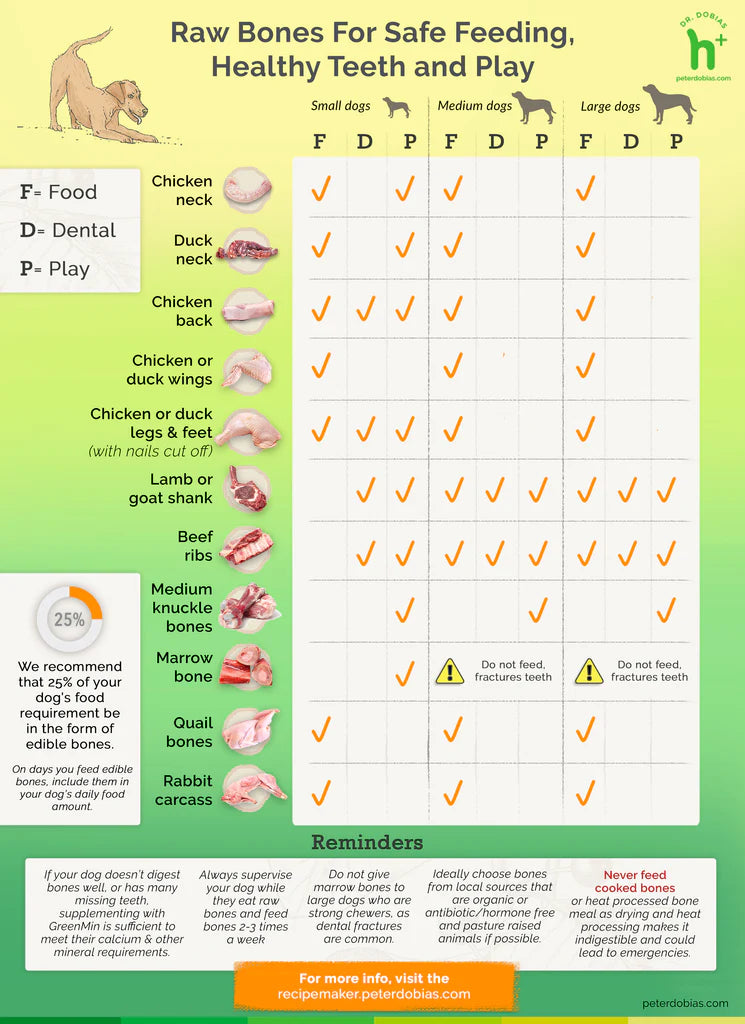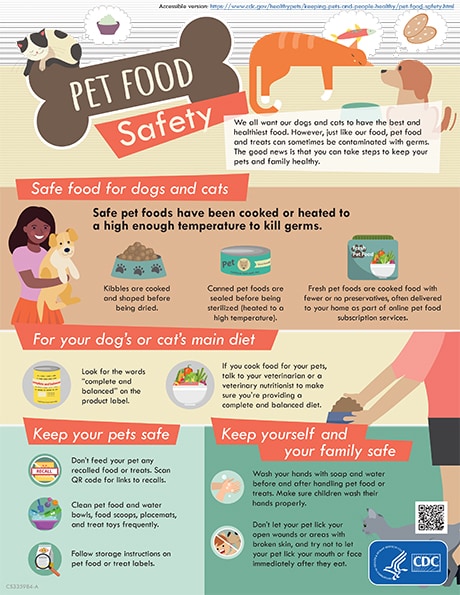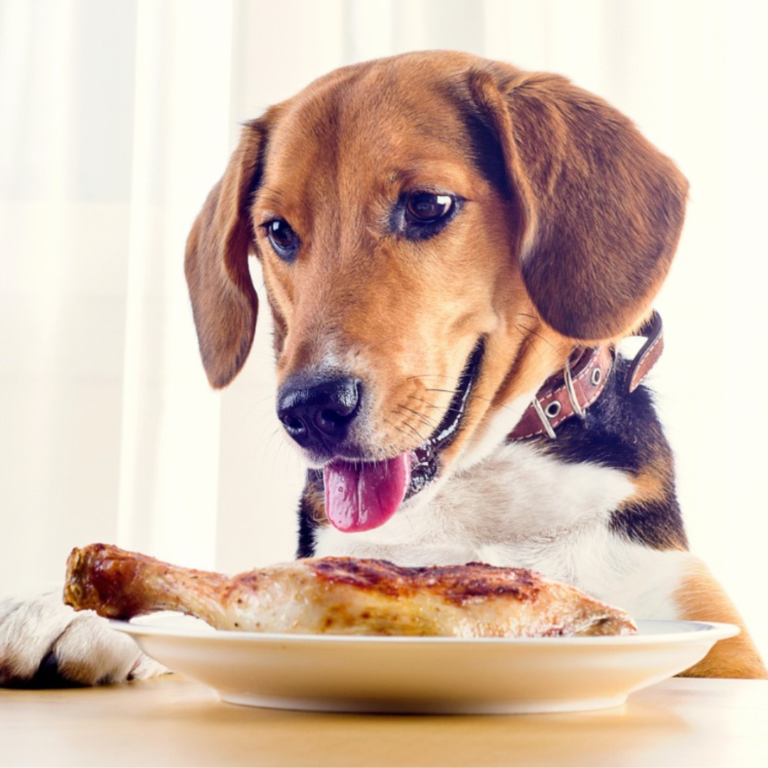If your dog ate a chicken bone but seems fine, monitor them closely for any signs of distress and contact a vet for emergency treatment if necessary. It is important to act quickly and seek professional help if your dog shows any unusual symptoms or behaviors after ingesting a chicken bone.
Dogs have a natural instinct to chew on bones, but when it comes to chicken bones, there can be some risks involved. While dogs can typically handle and digest bones without any issues, chicken bones can pose a threat due to their small size and sharp edges.
If your dog has ingested a chicken bone but appears to be fine, it is important to stay vigilant and take necessary precautions to ensure their safety. We will discuss what to do if your dog ate a chicken bone but seems fine, potential risks associated with chicken bone ingestion, and how to prevent such incidents in the future.
Understanding The Risks
If you’re a pet parent, you may have experienced that heart-stopping moment when your dog snatches and devours a chicken bone. Although this can be a cause for concern, it’s essential to understand the potential dangers and take appropriate action to ensure your furry friend’s well-being. In this section, we’ll explore the risks associated with dogs eating chicken bones, understand why they are prone to gobbling them up, and identify the symptoms you should look out for.
Potential Dangers Of Chicken Bones For Dogs
Feeding your dog bones, especially chicken bones, can pose various risks to their health. Unlike large and sturdy bones designed for chewing, chicken bones are small and can easily splinter. The sharp edges and fragments can cause injuries to your dog’s mouth, throat, esophagus, stomach, or intestinal lining. These injuries can range from discomfort and irritation to more severe complications such as punctures or gastrointestinal obstruction.
Moreover, bone fragments can also get lodged in your dog’s digestive tract, causing blockages that require immediate medical attention. In some cases, surgery may be necessary to remove the bone or repair any internal damage caused by the ingestion.
Why Do Dogs Eat Chicken Bones?
Dogs are natural scavengers and are instinctively attracted to the smell, taste, and texture of chicken bones. This behavior stems from their ancestral roots where they would scavenge for food and hunt their prey. Unfortunately, this instinct can put them at risk when it comes to consuming bones that are unsuitable for their digestion.
It’s crucial to be mindful of your dog’s environment and keep chicken bones out of their reach to prevent any accidental ingestion. Additionally, providing your furry companion with appropriate chew toys and a balanced diet can help satisfy their natural chewing instincts without the dangers associated with bones.
Symptoms Of A Dog Eating Chicken Bones
When a dog ingests a chicken bone, it’s essential to watch for any signs of distress or discomfort. While some dogs may pass the bones without any issues, others may experience symptoms that require immediate veterinary attention. Here are some common symptoms to look out for:
- Gagging or choking
- Excessive drooling
- Vomiting or regurgitation
- Abdominal pain or discomfort
- Lethargy or unusual behavior
- Loss of appetite
- Bloody stool or difficulty defecating
- Whimpering or vocalizing in discomfort
If you notice any of these symptoms or suspect that your dog has consumed a chicken bone, it’s crucial to seek immediate veterinary assistance. A professional evaluation can help determine the extent of the risk and initiate appropriate treatment to ensure your dog’s safety and comfort.

Credit: peterdobias.com
Immediate Actions
If your dog ate a chicken bone but seems fine, it is important to monitor them closely. While most dogs can pass chicken bones without any issues, it is best to contact a vet for guidance and keep an eye on their behavior and appetite.
What To Do If Your Dog Eats A Chicken Bone
If your dog has managed to eat a chicken bone, there are immediate actions you can take to ensure their safety. Act quickly to minimize any potential risks and help your furry friend. Remember to remain calm and follow these steps:- Assess the situation: Start by checking if your dog is choking or in distress. Look for signs like difficulty breathing, excessive drooling, or pawing at their mouth.
- Do not attempt to retrieve the bone: Refrain from trying to remove the bone yourself as this may cause further harm, especially if your dog is choking. It’s best to leave it to the professionals.
- Separate your dog: If you have other pets at home, separate the dog who ate the bone to prevent any possible fights over food.
- Offer them bread or soft food: If your dog has not choked and has already swallowed the bone, offer them a small piece of plain white bread or another soft food. This can help cushion the lining of their esophagus and digestive tract.
- Encourage them to drink water: Providing them with water can help the bone move through their digestive system more easily.
Common Mistakes To Avoid
Although it’s natural to panic when your dog eats a chicken bone, avoid making these common mistakes that can potentially worsen the situation:- Attempting to remove the bone yourself: Trying to remove the bone from your dog’s throat can cause more harm, so it’s best to let a veterinarian handle it.
- Feeding your dog more bones or fatty foods: While some sources suggest giving your dog fatty foods like butter or chicken skin to help coat the bone and assist digestion, this can increase the risk of pancreatitis. It’s safer to stick to plain white bread or soft food.
- Delaying or ignoring symptoms: Even if your dog appears fine after eating a chicken bone, it’s essential to remain vigilant and watch for any signs of distress. Contacting a veterinarian can provide reassurance and guidance.
Contacting A Veterinarian
Regardless of whether your dog appears to be in distress or seems fine after eating a chicken bone, it’s crucial to reach out to a veterinarian for professional advice. They can provide appropriate guidance based on your dog’s specific situation. Remember to: – Keep the veterinarian’s contact information readily available. – Be prepared to provide details about your dog, such as their size, breed, and the approximate size of the bone they ingested. – Follow the veterinarian’s instructions and seek immediate emergency care if necessary.Taking immediate actions and contacting a veterinarian can ensure the safety and well-being of your canine companion. Remember, prevention is always better than cure, so try to avoid giving your dog bones in the future to minimize any potential risks.Preventive Measures
If your dog ate a chicken bone but seems fine, it is important to monitor their behavior closely. Look out for signs of distress such as vomiting, diarrhea, or difficulty breathing. If any of these symptoms occur, contact your veterinarian immediately.
In the meantime, you can offer them a piece of plain white bread to help cushion their digestive tract.
Avoiding Feeding Bones To Dogs
Feeding bones to dogs may seem like a natural instinct, but it can actually pose serious health risks. Chicken bones, in particular, can splinter easily and cause punctures or blockages in your dog’s digestive system. To ensure the safety of your furry friend, it’s important to avoid feeding them bones altogether. Instead, opt for safer alternatives that provide the same chewing satisfaction without the potential dangers.Safe Alternatives For Chewing
Fortunately, there are plenty of safe and enjoyable alternatives to bones that can satisfy your dog’s natural urge to chew. Consider providing them with sturdy chew toys made specifically for dogs or opt for natural treats like antlers, rawhide, or specially formulated dental chews. These alternatives not only provide mental stimulation but also promote healthy teeth and gums. Always choose items that are appropriate for your dog’s size and chewing habits to prevent any potential choking hazards.Establishing A Safe Environment
In addition to avoiding bones and providing safe alternatives, it’s crucial to establish a safe environment for your dog. Keep hazardous objects out of their reach and regularly inspect your surroundings for any potential dangers. This includes picking up chicken bones and other small items that could be accidentally ingested. If you have children or other pets at home, teach them about the importance of not feeding bones to the dog and maintaining a safe environment. By following these preventive measures, you can ensure your dog’s safety and well-being. Remember, it’s always better to be cautious and proactive in preventing any harm to your four-legged companion. Their health and happiness depend on it.| Avoiding feeding bones to dogs | Safe alternatives for chewing | Establishing a safe environment |
|---|---|---|
|
|
|

Credit: www.cdc.gov

Credit: www.pinterest.com
Frequently Asked Questions For My Dog Ate A Chicken Bone But Seems Fine
How Do I Know If My Dog Is Ok After Eating Chicken Bones?
If your dog appears to be in distress after eating chicken bones, act quickly and contact a vet for emergency treatment right away. Monitor your dog closely and if they seem to be acting normally, the bone will likely pass through their digestive tract.
Avoid feeding bones to your dog as a rule.
Can A Dog Eat Chicken Bones And Survive?
Dogs can eat chicken bones and survive most of the time. The bones will usually dissolve in their stomach before they become dangerous. If your dog has swallowed a chicken bone, give them bread or soft food and encourage them to drink water.
Monitor their behavior and contact a vet if they show signs of distress.
How Can I Help My Dog Pass A Bone?
To help your dog pass a bone, offer them a piece of plain white bread or another soft food to cushion their digestive tract. Encourage them to drink water as well. If your dog isn’t choking and has already swallowed the bone, this can help it pass without complications.
Monitor your dog closely and contact a vet if they show any signs of distress.
How Long Does It Take A Dog To Digest A Bone?
A dog will typically digest a bone in about 24-48 hours.
Conclusion
If your dog ate a chicken bone but seems fine, there is usually no need to panic. Dogs have been eating bones for centuries and can usually pass them without any issues. However, it is important to monitor your dog closely for any signs of distress or discomfort.
If you notice any symptoms, it is best to contact a veterinarian for advice. Remember to always avoid feeding your dog bones in the future to prevent any potential risks.



